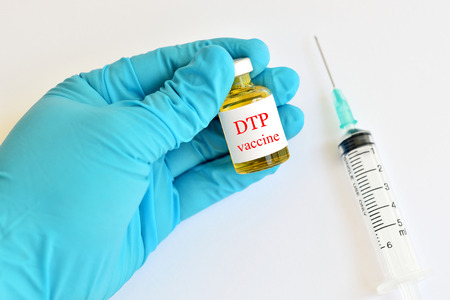
Diphtheria, tetanus, and pertussis are serious diseases caused by bacteria and. Diphtheria and pertussis are spread from person to person through respiratory drops caused by coughing or sneezing. Diphtheria can lead to breathing problems, paralysis, heart failure, and even death. Pertussis (Whooping Cough) causes coughing spells so bad that it is hard for infants to eat, drink, or breath and it can lead to pneumonia, seizures (jerking and staring spells), brain damage, and death. Tetanus (lockjaw) enters the body through cuts, scratches, or wounds and causes painful tightening of the muscles, usually originating in jaw muscles and in some cases locking the jaw so the person cannot open his/her mouth or swallow. Haemophilus Influenza Type B (Hib) was once the most common cause of bacterial meningitis and a leading cause of other serious infections in young children.
The vaccines available to help prevent these diseases have been routinely given to children since the 1940s. These include DTP, DTaP, and DTaP Hib, which are vaccines for children 6 years of age and younger. DTP, once the standard vaccine, has been replaced in the US with DTaP. DTaP is just as effective but is safer and has fewer side effects than DTP. The benefit of these vaccines wears off by adolescence. Therefore, more cases are seen in adults who have not had a booster. The CDC recommends adults get a tetanus and diphtheria (Td) booster every 10 years. DTAP is the childhood vaccine and TDAP is the “booster” shot.
The vaccines associated with these diseases, however, can cause serious reactions and injuries including:
- Shoulder Injuries (SIRVA)
- Rotator Cuff Injuries
- Bursitis
- Tendonitis
- Adhesive Capsulitis
- Frozen Shoulder
- Brachial Neuritis
- Seizures
- Encephalopathy
- Anaphylactic shock
- Allergic reactions
- Fever
- Death
- Other injuries
This is not an exhaustive list of severe side effects that have been linked to the above vaccines. If you or a loved one sustained an injury or started experiencing symptoms after receiving any of these vaccines, please contact our Vaccine Injury Attorneys as you may be entitled to compensation under the National Vaccine Injury Compensation Program (NVICP).
